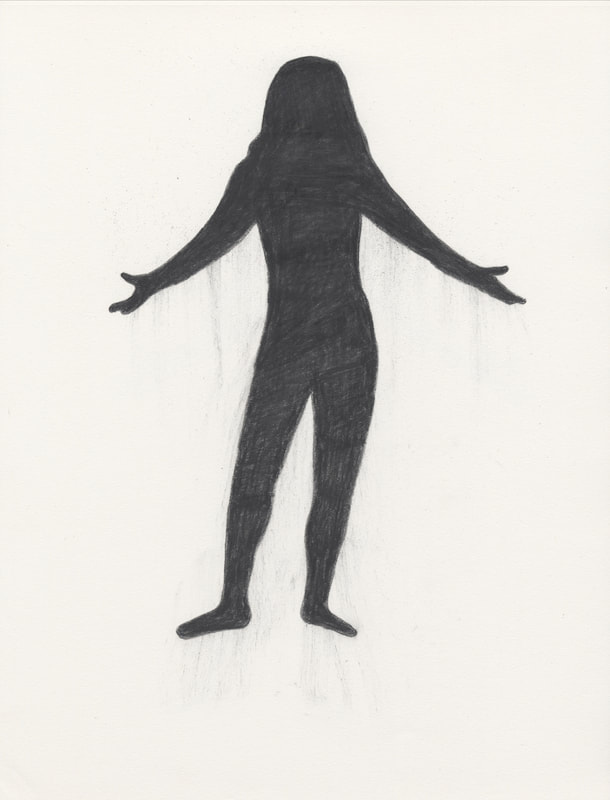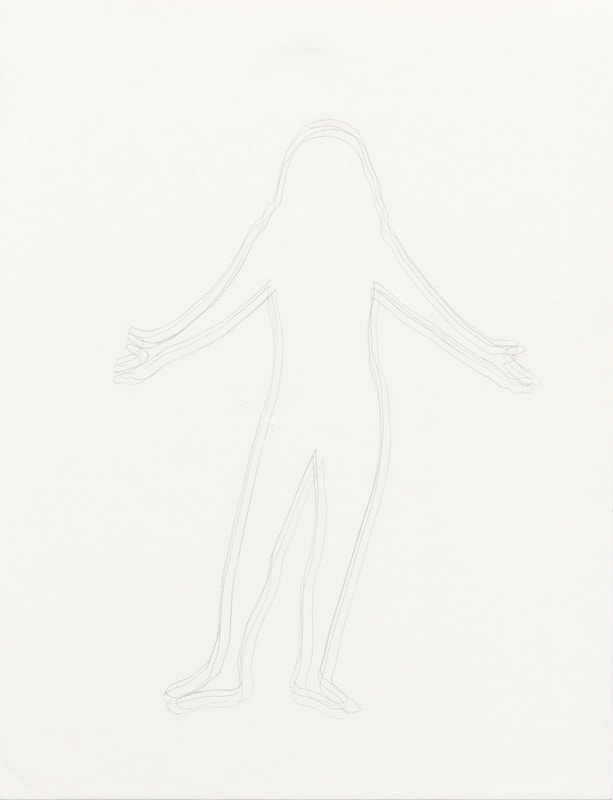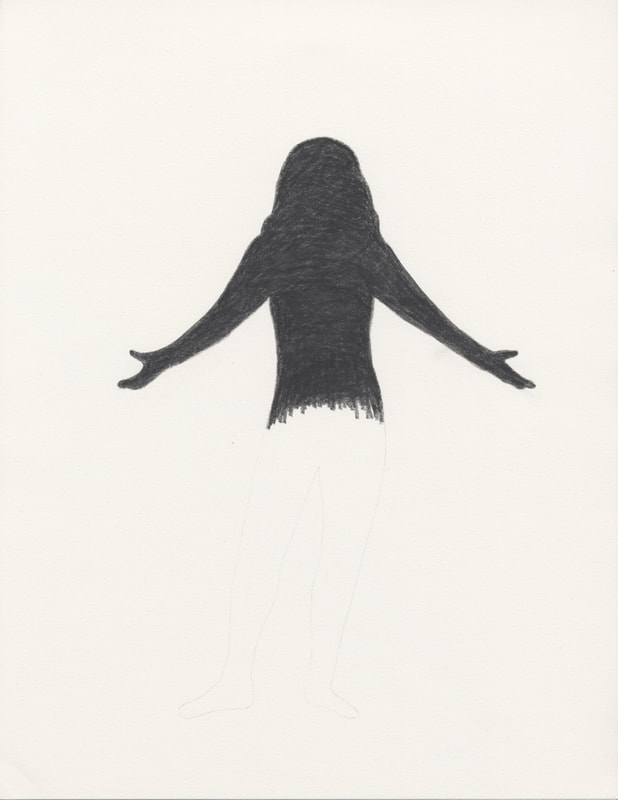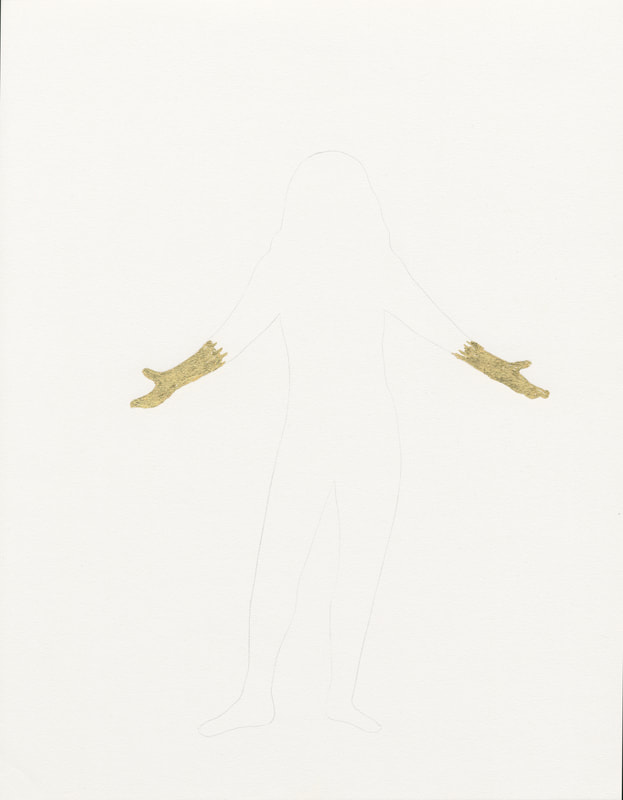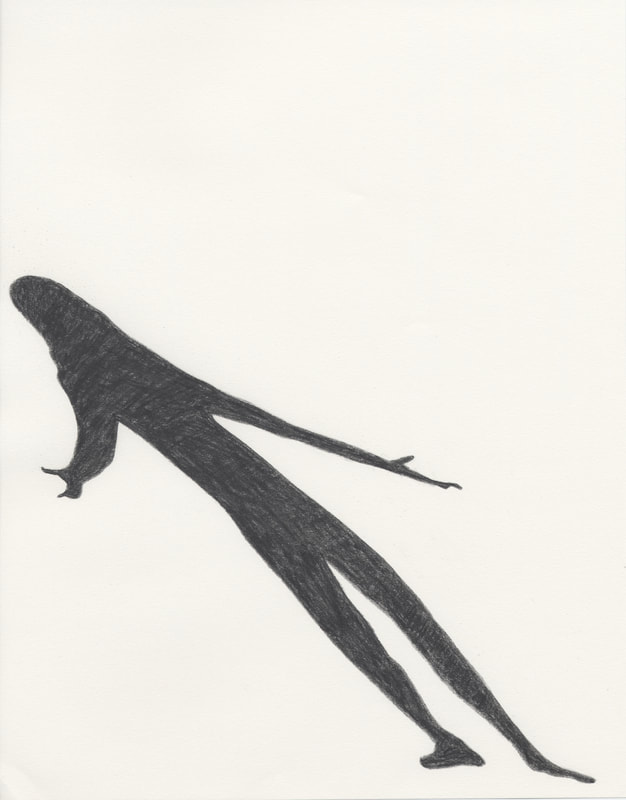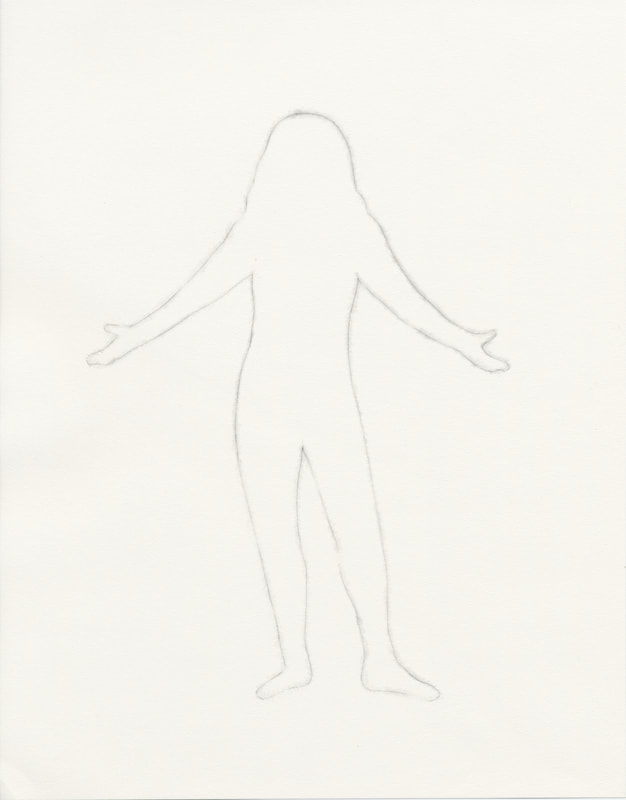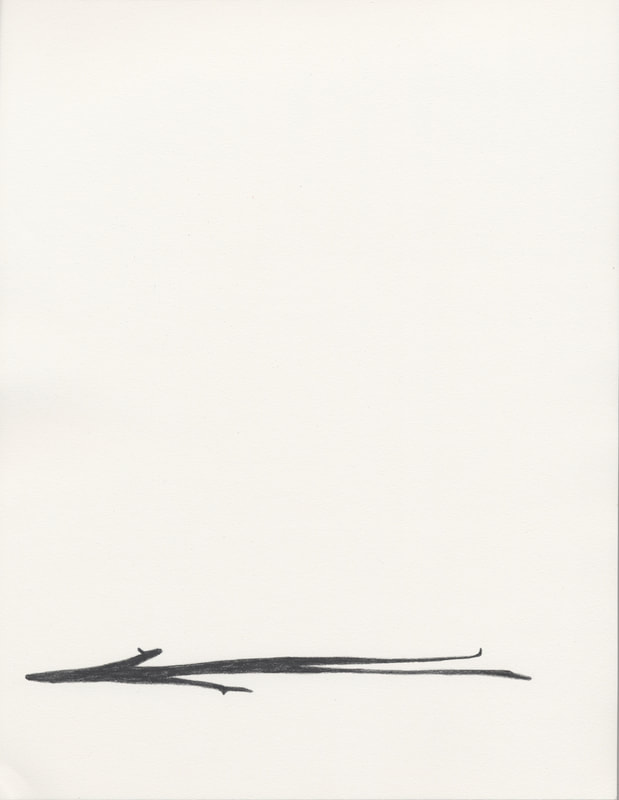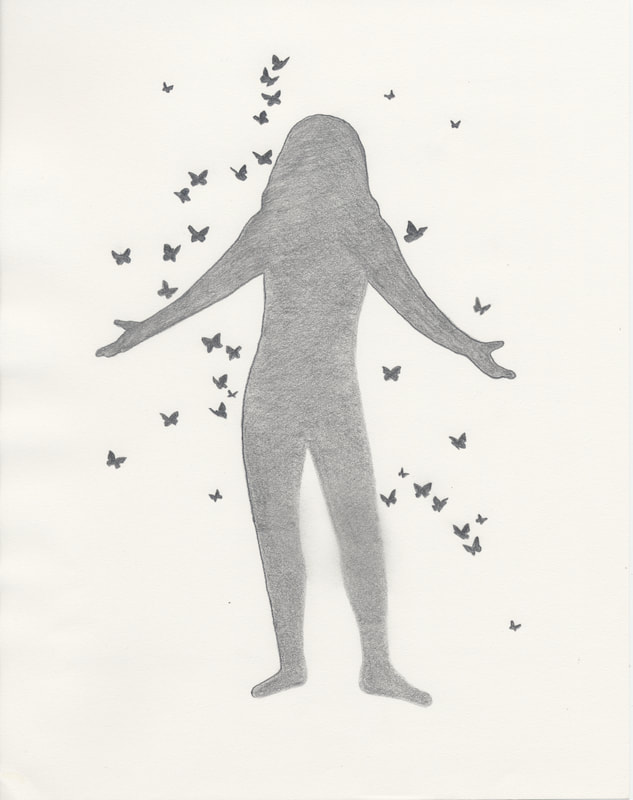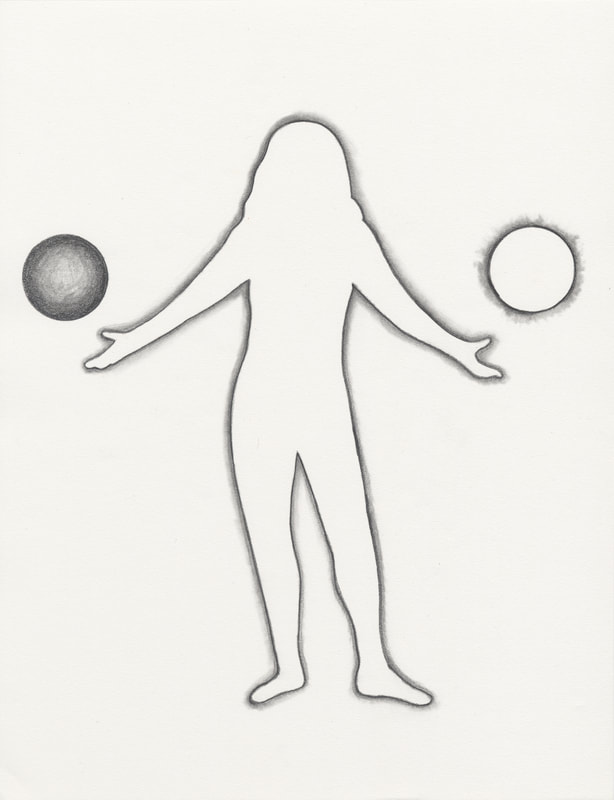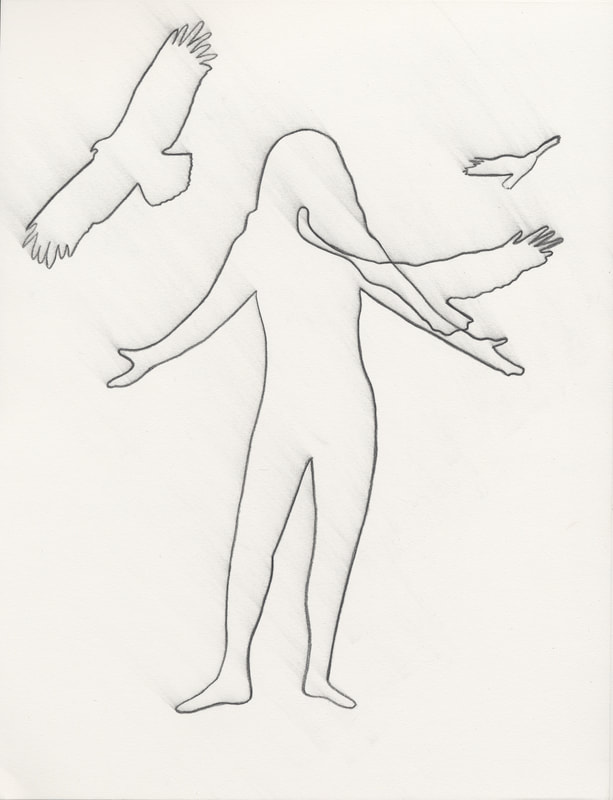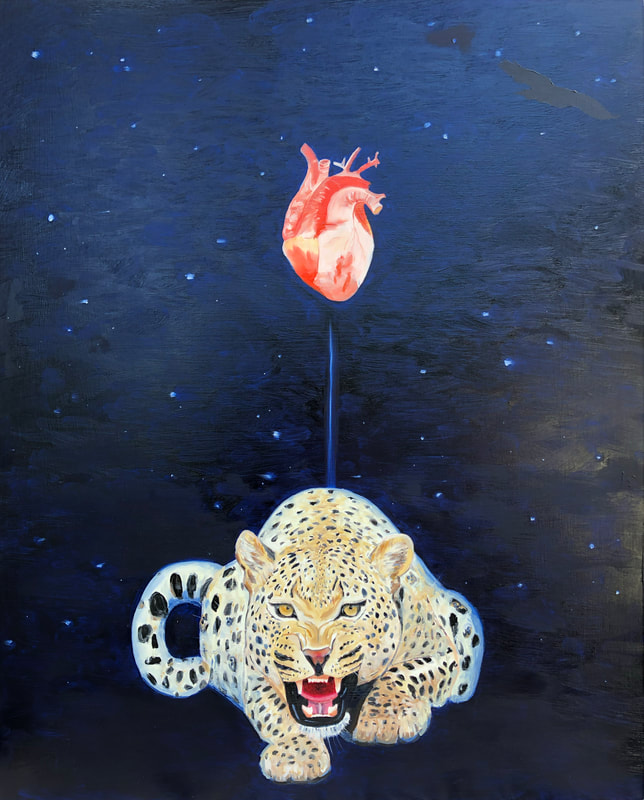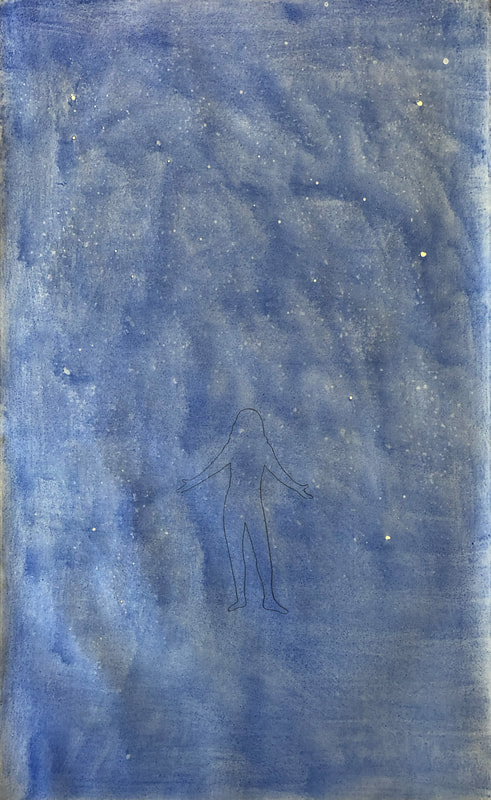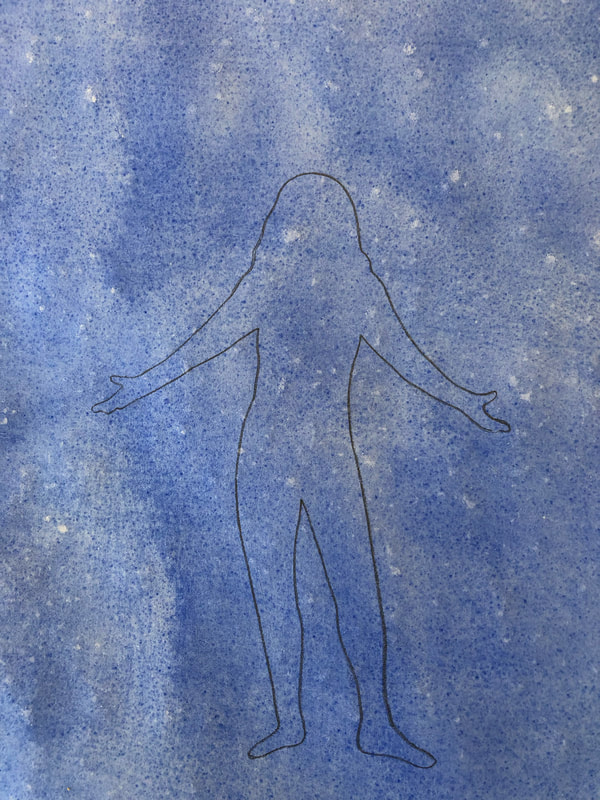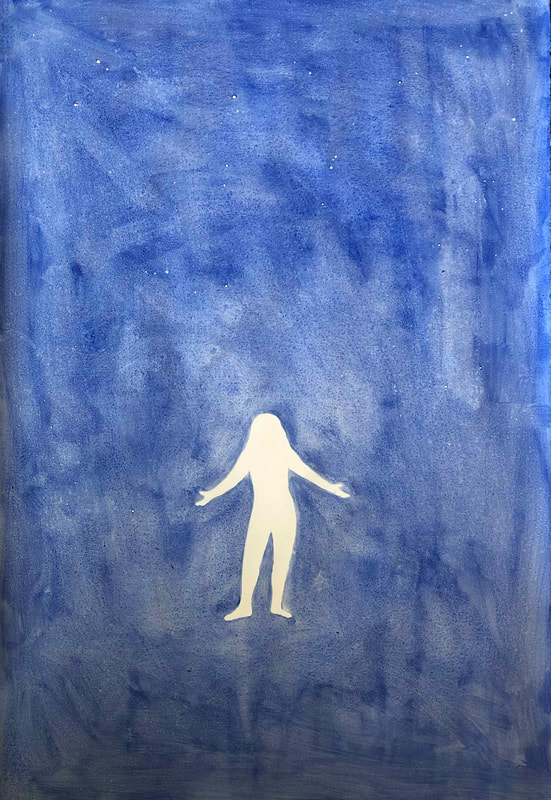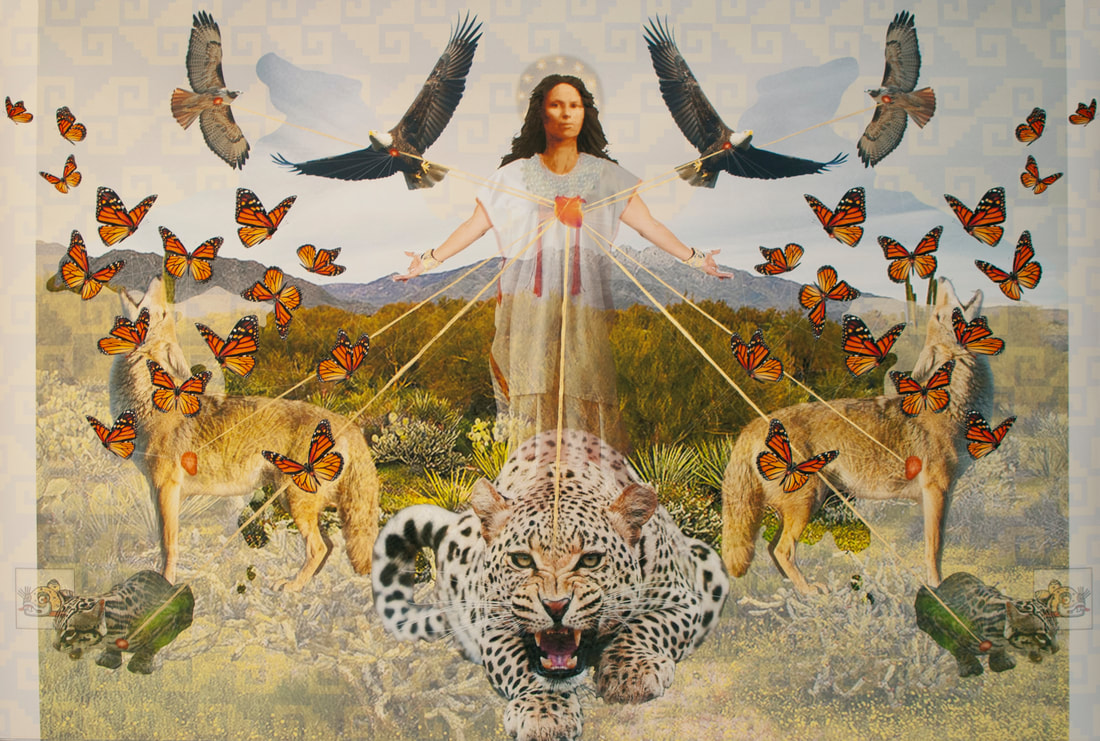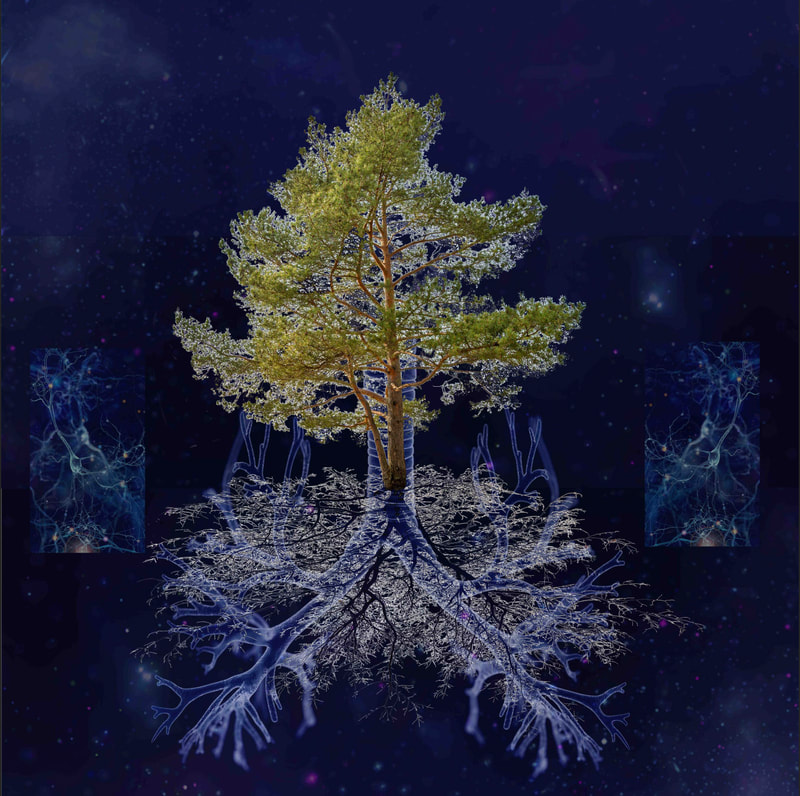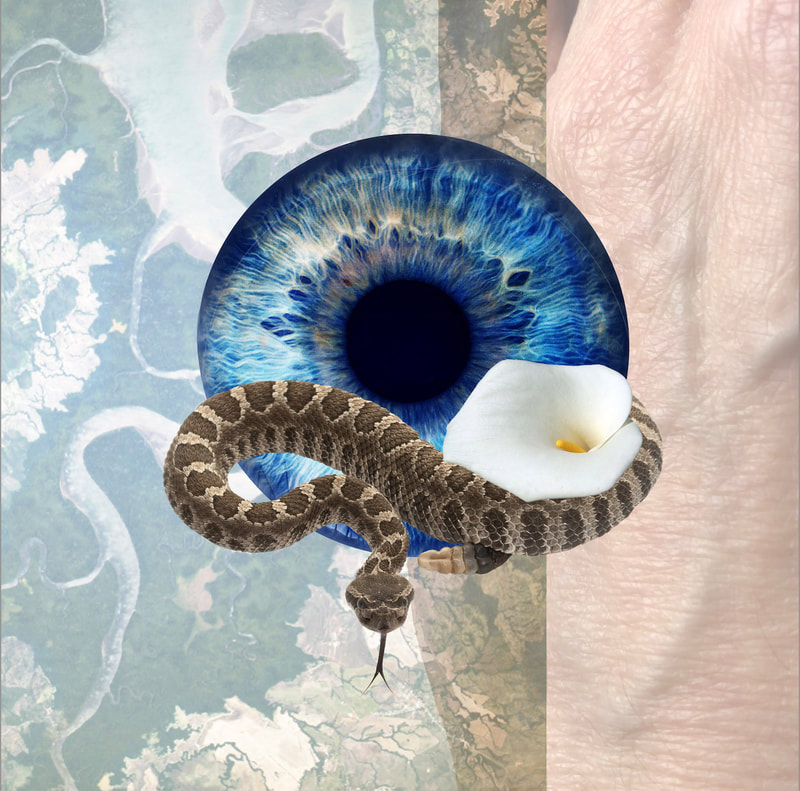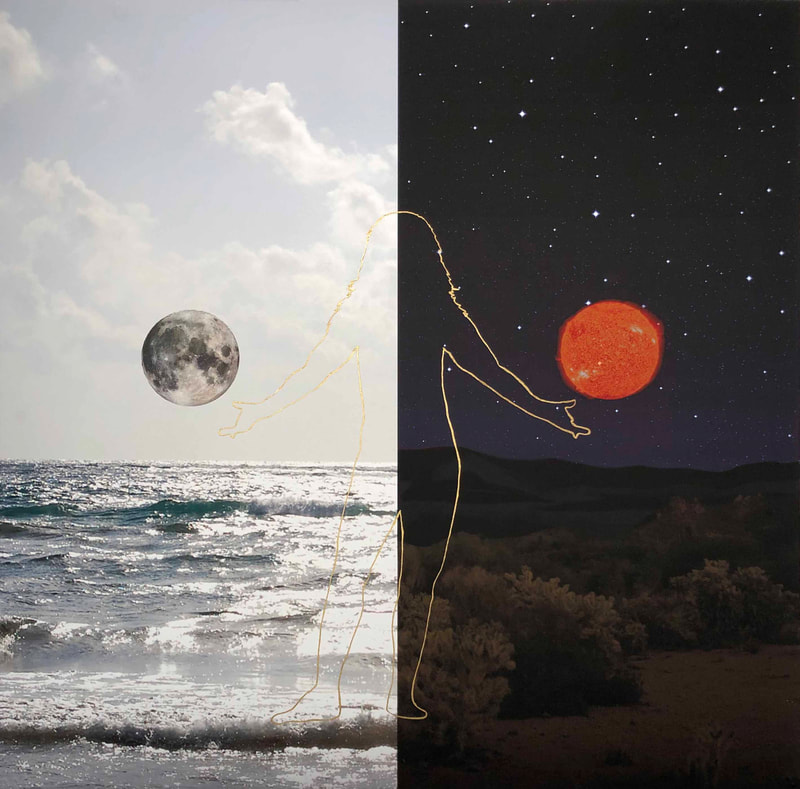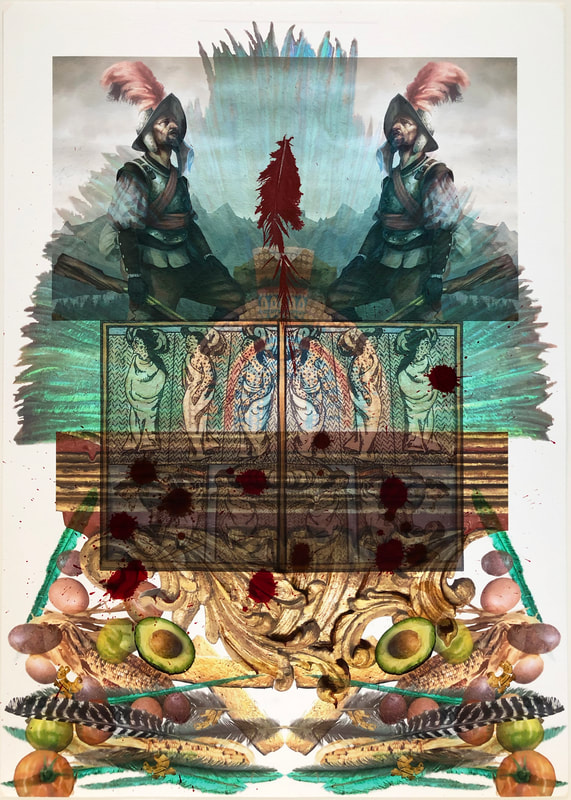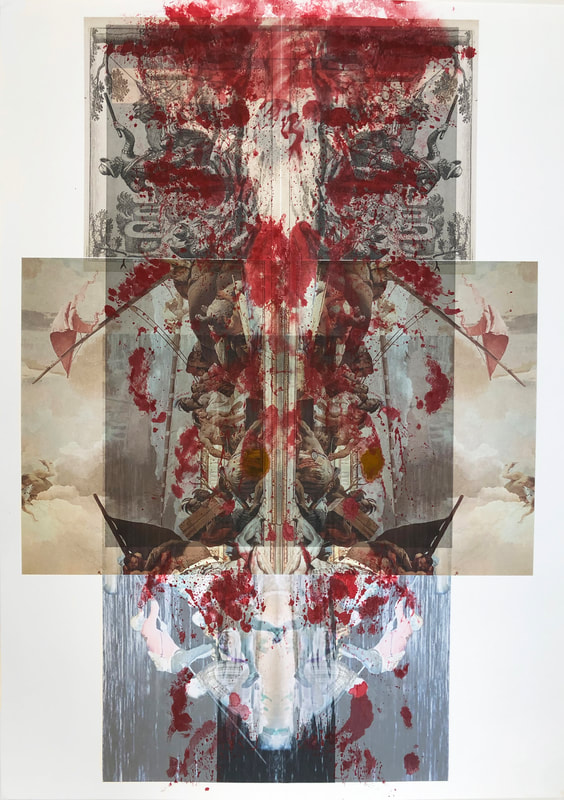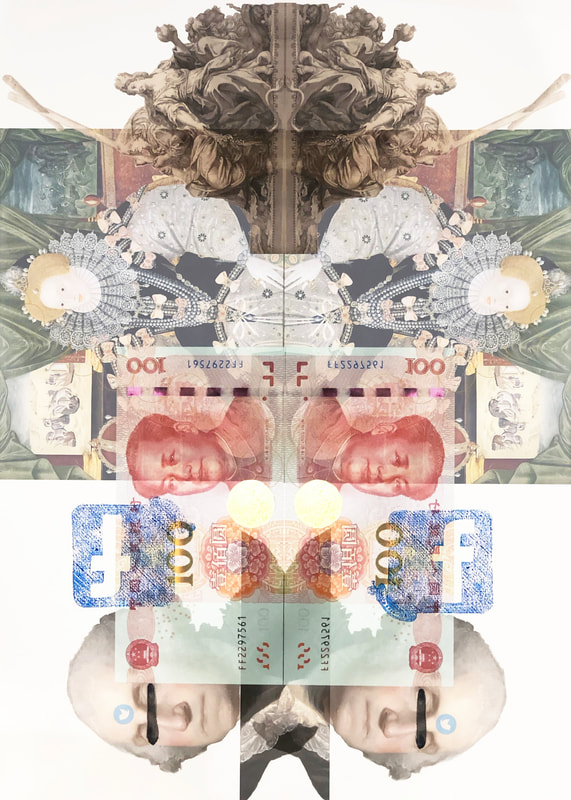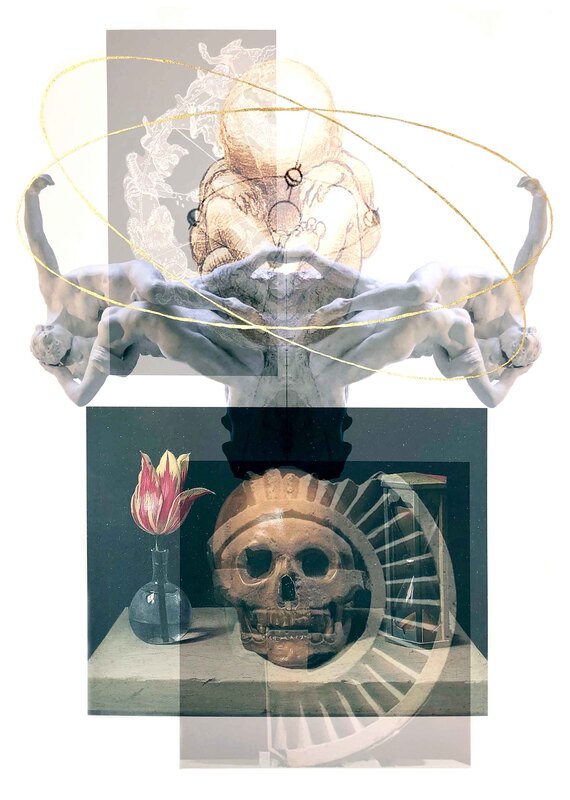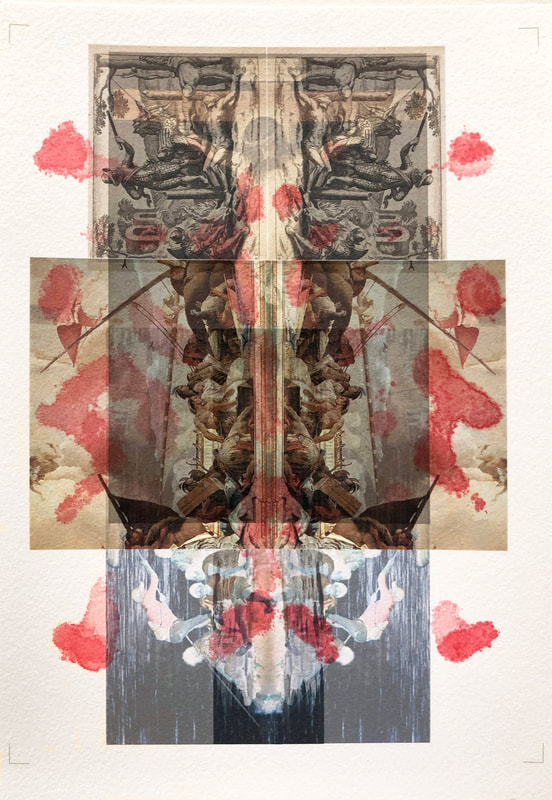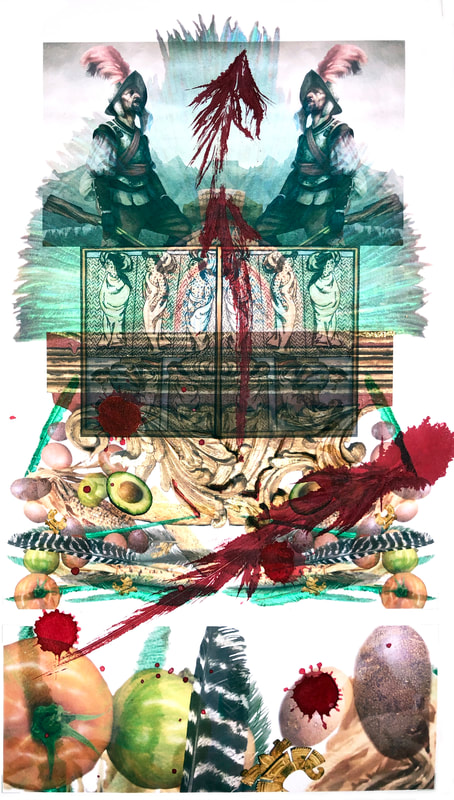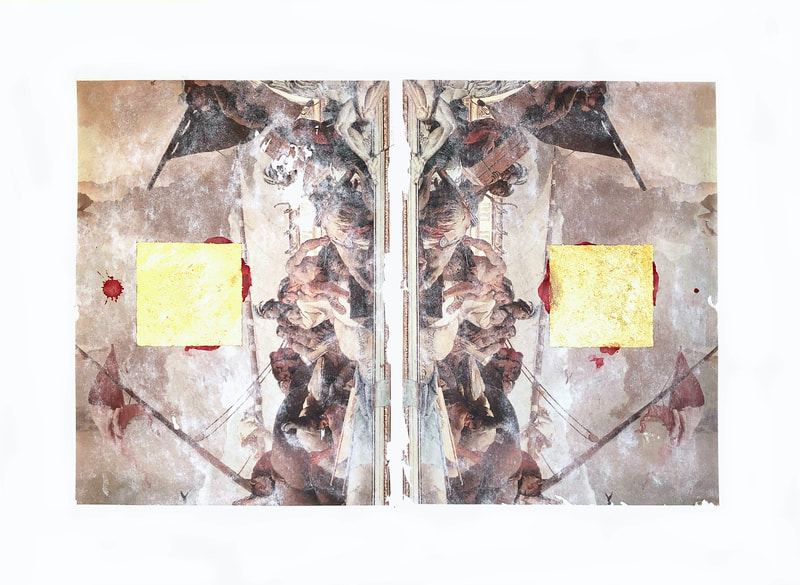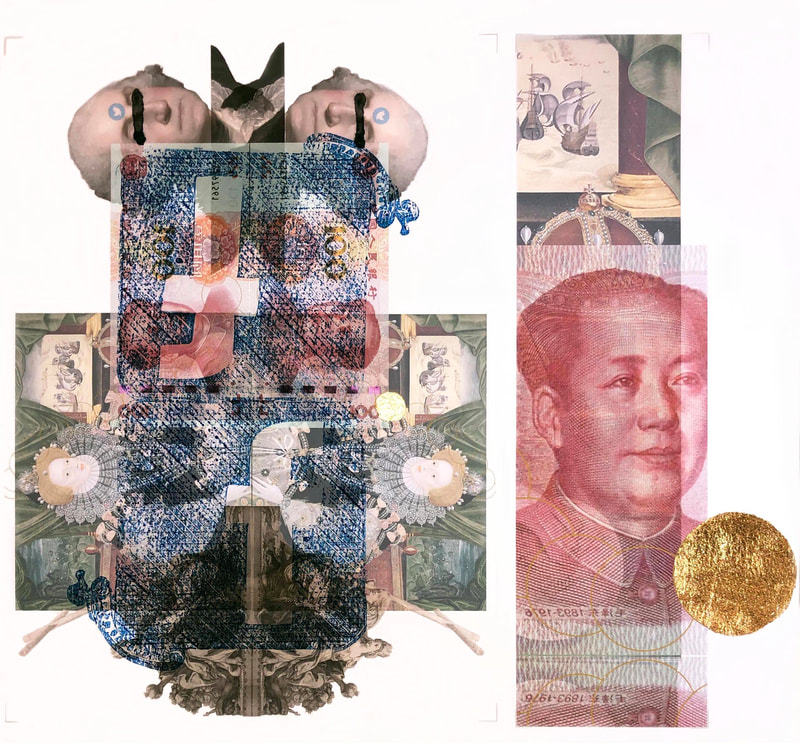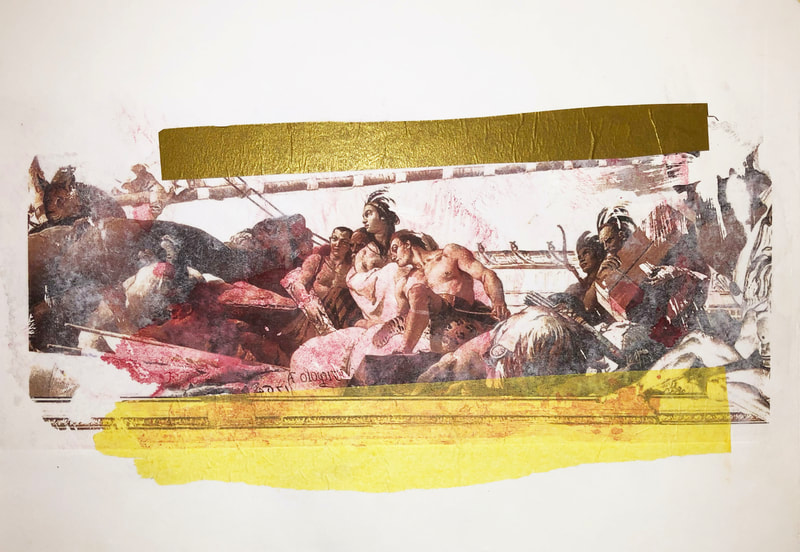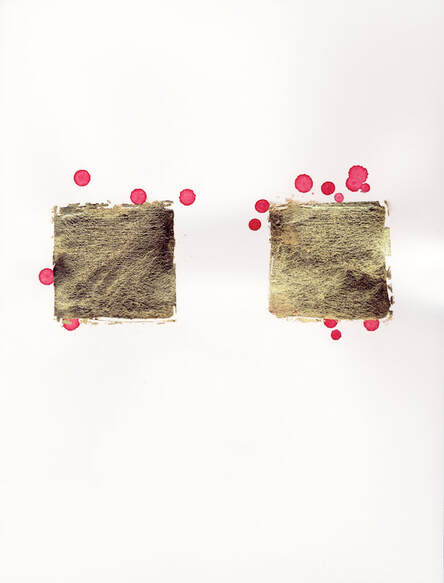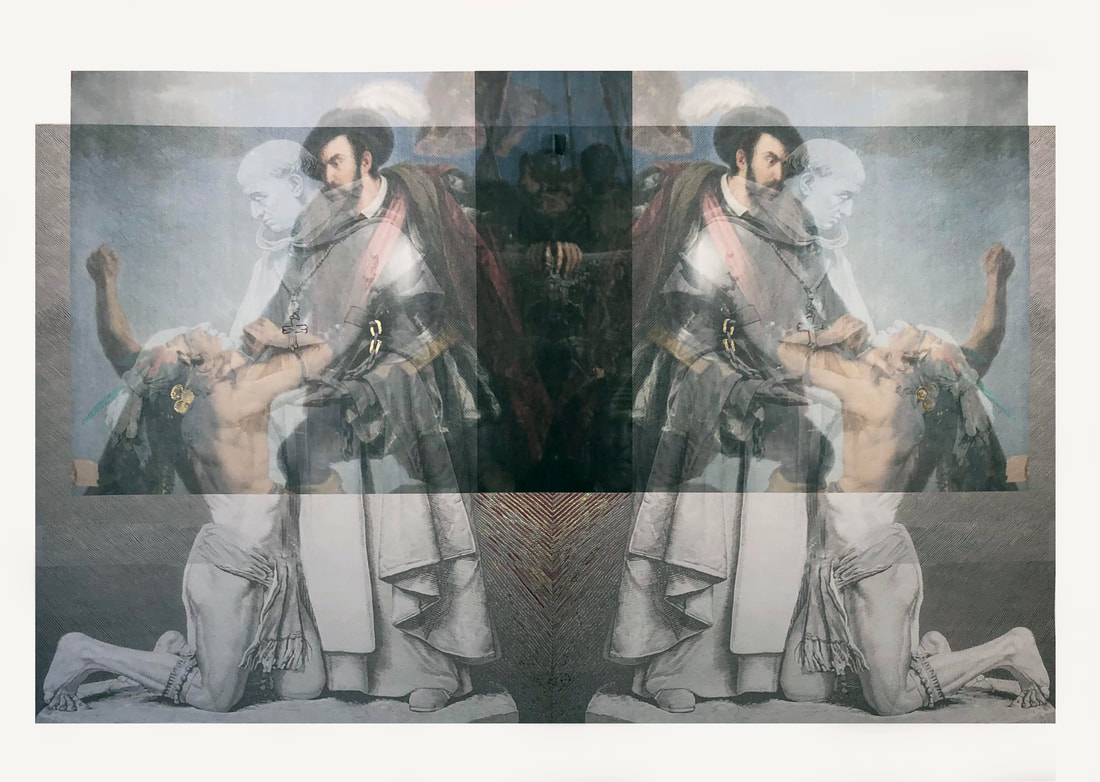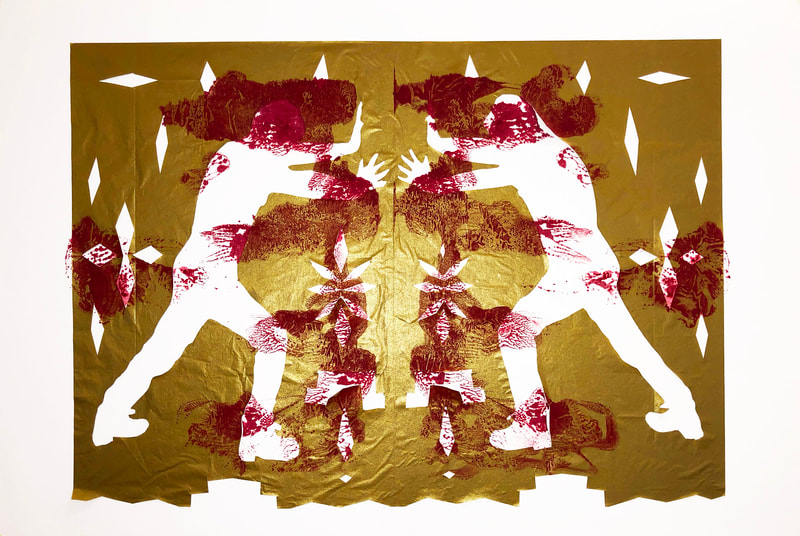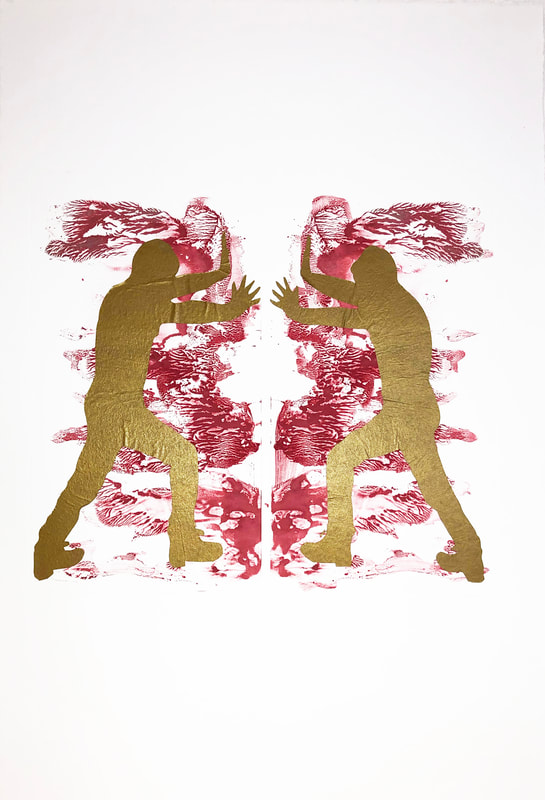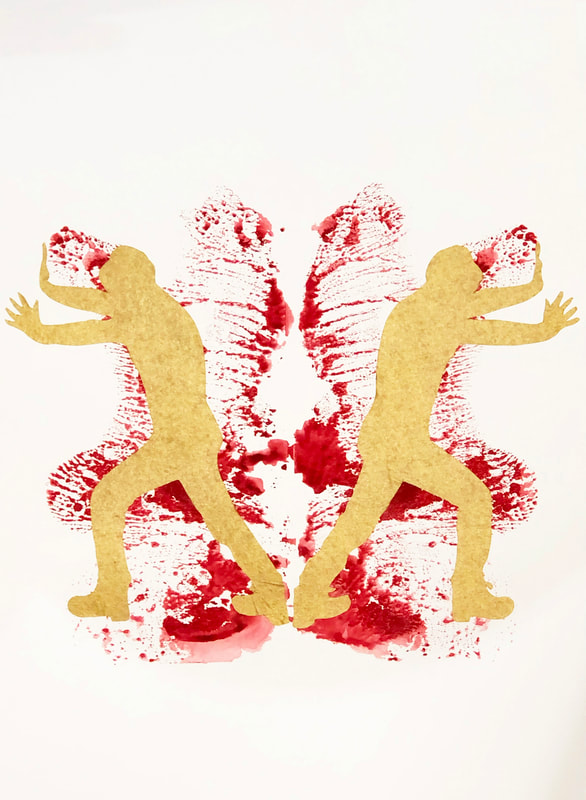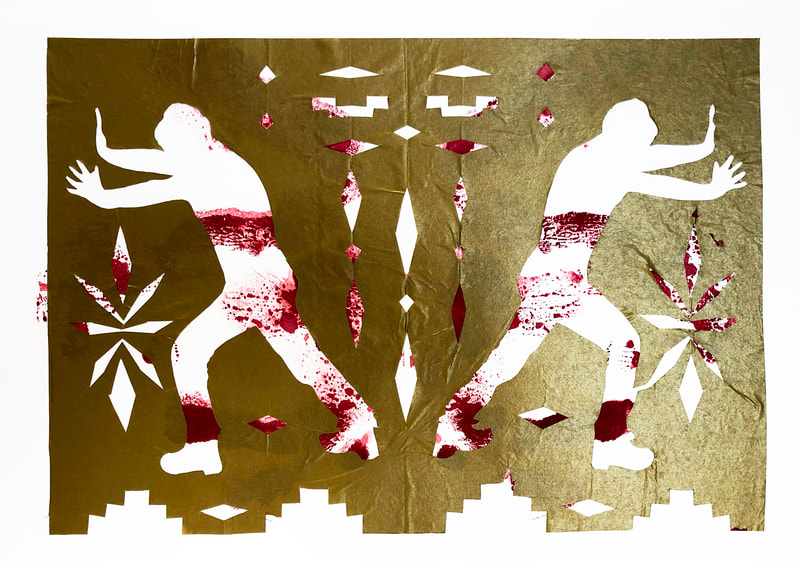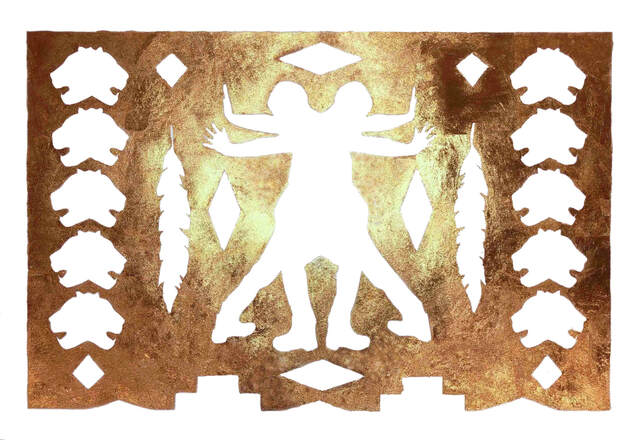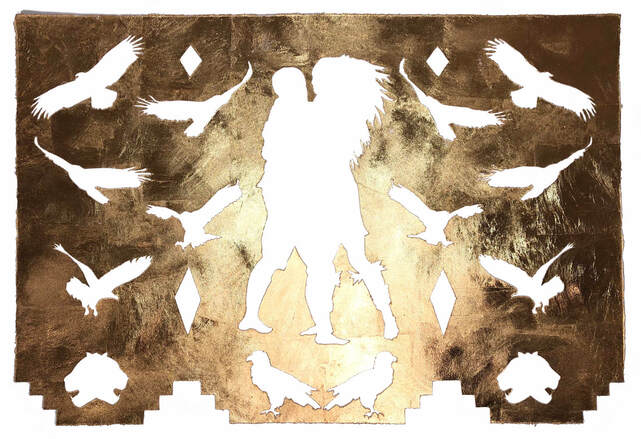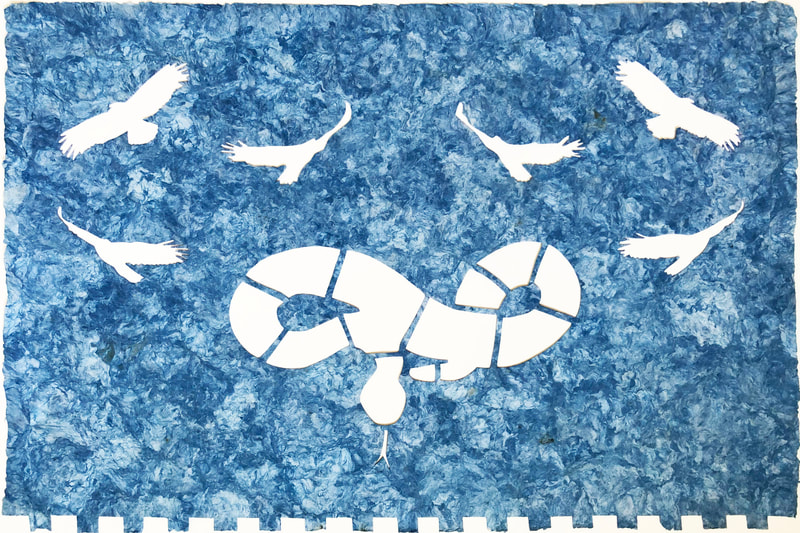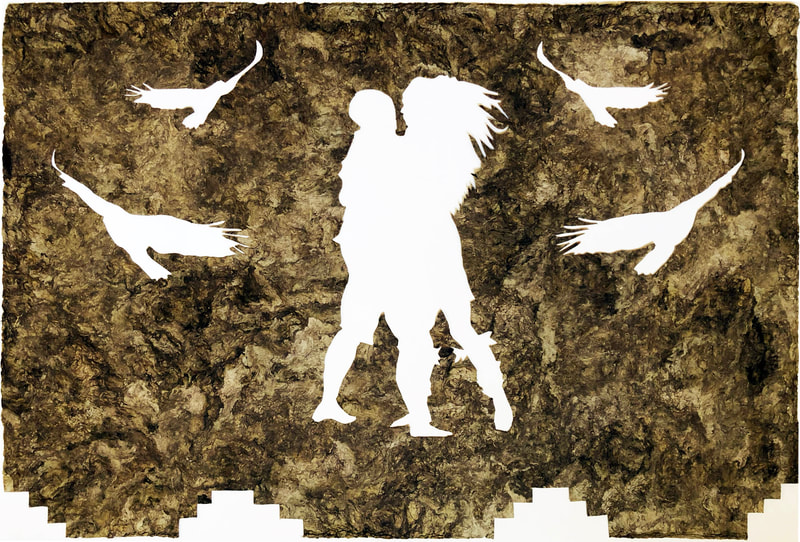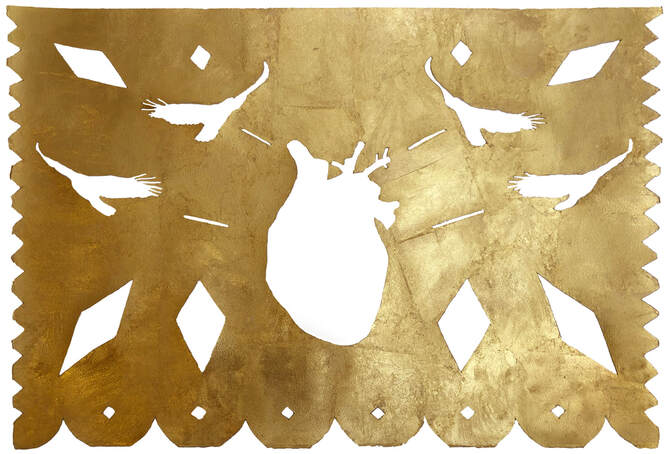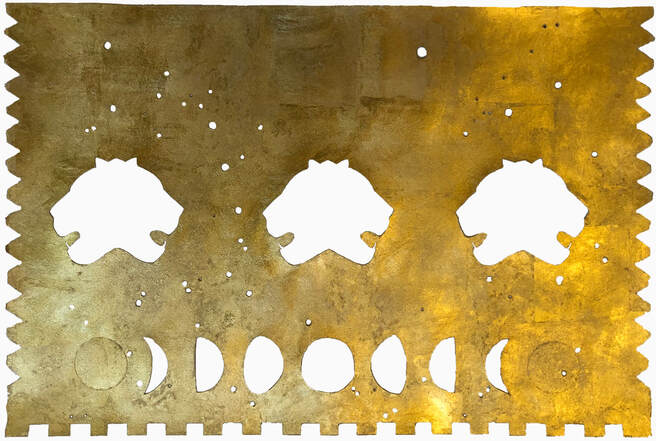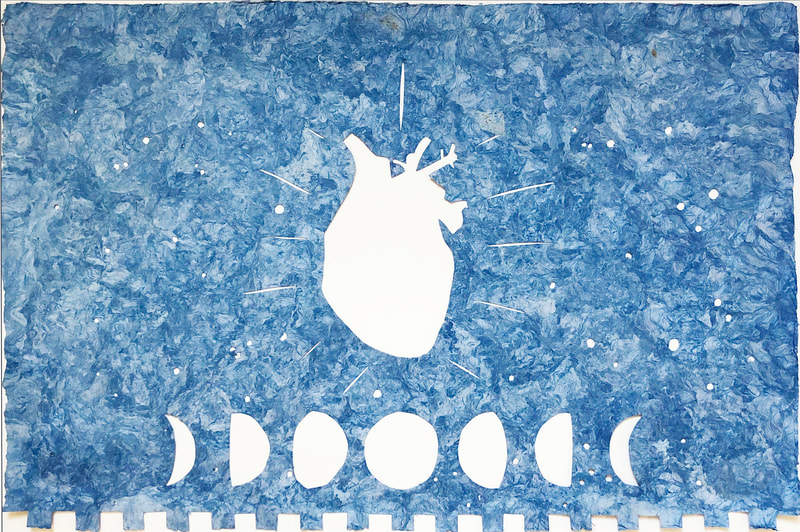Reflexiones
This work initially began as an exploration of Spanish colonization in the Americas, motivated by Schafer's desire to understand her maternal "mestiza" origin. In this series, Schafer uses digital images to create direct visual connections between complex historical events that have become abstracted or obscured by time and intention. By layering, mirroring, and ordering selected images, Schafer aims to shift historical authorship and restore truths. Using juxtapositions, she examines the irony of the near annihilation of indigenous social structures and systems of knowledge at the point of contact with European diseases, and the inherent violence accompanied by European presumption of cultural superiority. She further explores the parallels between the catastrophic historic loss of sovereignty and the continuing implications on Latin Americans' migration to this day.
The artworks use the mirror, reflection, and the Rorschach ink blot as metaphors to share an introspective process of reconciling a part of Schafer's ancestral history that is complex, shameful, and horrific, laced with greed, violence, and disease. The latest works in this series focus on exploring the indigenous beliefs that were lost in Schafer's lineage and nearly erased by colonization and cultural assimilation. The aim is to seek a restorative process that reincorporates these beliefs into her life.
This work initially began as an exploration of Spanish colonization in the Americas, motivated by Schafer's desire to understand her maternal "mestiza" origin. In this series, Schafer uses digital images to create direct visual connections between complex historical events that have become abstracted or obscured by time and intention. By layering, mirroring, and ordering selected images, Schafer aims to shift historical authorship and restore truths. Using juxtapositions, she examines the irony of the near annihilation of indigenous social structures and systems of knowledge at the point of contact with European diseases, and the inherent violence accompanied by European presumption of cultural superiority. She further explores the parallels between the catastrophic historic loss of sovereignty and the continuing implications on Latin Americans' migration to this day.
The artworks use the mirror, reflection, and the Rorschach ink blot as metaphors to share an introspective process of reconciling a part of Schafer's ancestral history that is complex, shameful, and horrific, laced with greed, violence, and disease. The latest works in this series focus on exploring the indigenous beliefs that were lost in Schafer's lineage and nearly erased by colonization and cultural assimilation. The aim is to seek a restorative process that reincorporates these beliefs into her life.

